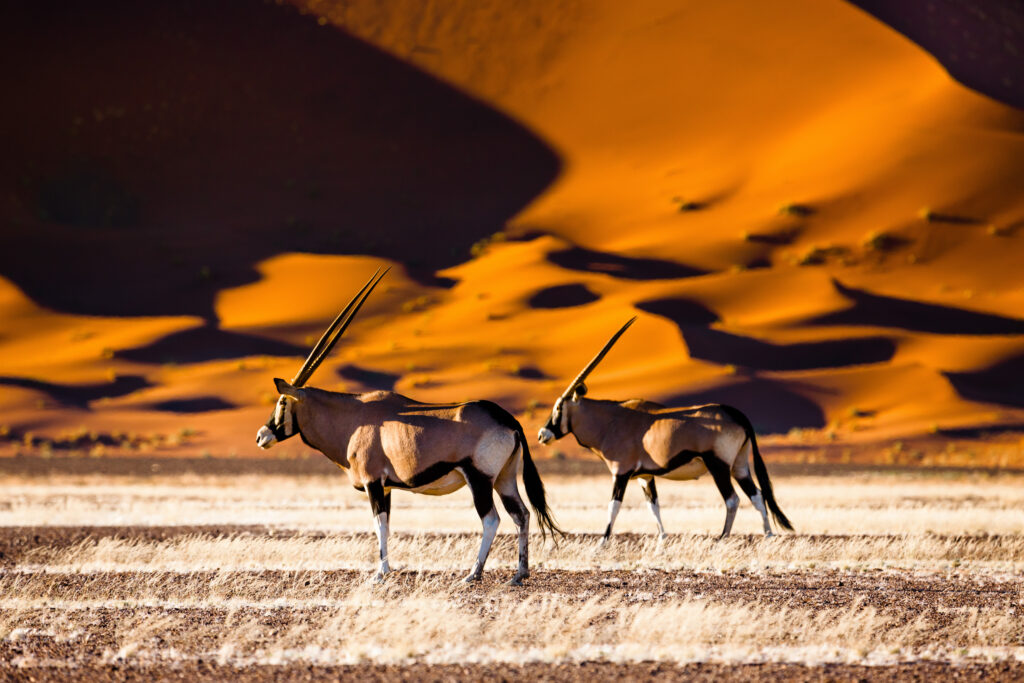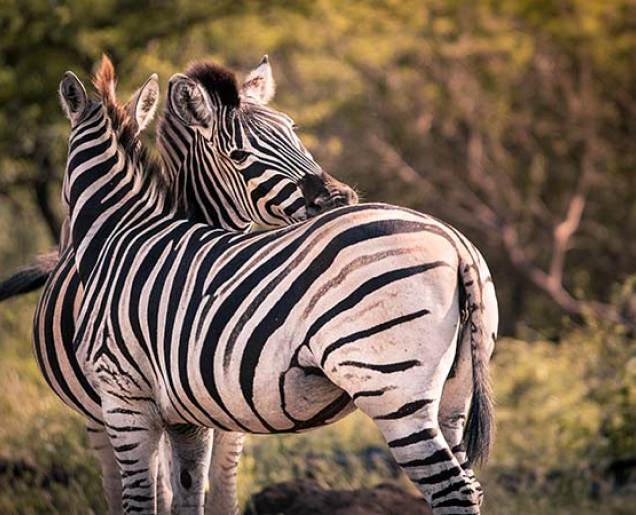

Botswana is a small landlocked country in Southern Africa, dominated by the Kalahari Desert, which makes up 70% of its land surface. Whether you safari on land or water, you can get up close and personal to some of the world’s most spectacular animals. You will also witness spectacular scenery, from the Okavanga Delta to Victoria Falls.
You might even be able to watch the hippos swim and play in the evenings before returning to camp to relax by the campfire.
There is so much to see, that one adventure may not be enough.


Indigenous African Bush peoples were the first inhabitants of Botswana, originating in the north and migrating south. They intermarried with the Hottentots and the Bantu peoples, and all coexisted peacefully. In the 10th century, the Shona settled in the northeast, followed by the first Tswana settling in the southeast in the 15th century. It is believed that the Tswana migrated from the south, and by the 18th century, they had established themselves in the area. In the late 19th century, hostilities broke out between the Tswana, the Ndebele and the mass of humanity that was fleeing from the Transvaal and the Boers. As the British were also rivals of the Boers, Bechuanaland, as Botswana was then known, was put under British protectorate in 1885. In 1964, Britain accepted proposals for democratic self-government in Botswana, and the country gained complete independence in 1966.
Botswana has so much to offer, from the sweeping savanna to the sprawling Okavango Delta.
G Adventures has a range of tours designed with you in mind. We love their new Unforgettable Africa Tour, which includes South Africa, Zimbabwe, and, of course, Botswana.
For Botswana-only tours, we suggest this fantastic range of offers from Tour Radar, all of which include time in the Okavango Delta and Chobe National Park.

There is no wrong time to visit Botswana, as every month brings different temperatures and opportunities for wildlife viewing. It is the rainy season between December and March, while September and October, it tends to get very hot. This is the best time to view big games with less water; they congregate in smaller areas.
Currently EU, US, Canadian, Australian and New Zealand citizens do not need a visa to enter Botswana. It is your own responsibility to check all visa requirements before travelling and obtain them in advance as required. For many nationalities visas can be obtained on the borders however you should contact the embassy for further information.
Visa services like www.travcour.com can be very helpful.
Important: pounds sterling are not accepted at border crossings so bring US dollars cash for any visa expenses at the border.


Caution should be taken when taking photos in and around the towns and cities. Locals should always be asked prior to taking a photo and it is not uncommon for them to ask for a small donation. Never take photos of police, military personal or buildings. The same goes for any government buildings, banks, post offices or the railway station. If you go in to the Okavango Delta by mokoro, you will need to protect cameras and binoculars in plastic bags as there is a good chance they could get wet.
difficulty exchanging these notes elsewhere in Africa, so please check your cash carefully at the point of purchase.
The monetary unit in Botswana is the pula. For up-to-date exchange rates with your own currency visit www.xe.com.
In general, Visa is the only credit card that will work everywhere in Africa. Master Card, AMEX and Cirrus will work in some countries but not in others.
We recommend that you bring cash in US dollars or ZAR only. When changing money, it is a good idea if at all possible, to get small denomination notes and coins in the local currency as often there is a lack of change when you are making purchases and no-one in Africa ever seems to have change.
Please note that it is not possible to withdraw US dollars from ATMs in Africa, only local currency.


Taxis are recommended for local journeys but they are rarely metered so you must negotiate your price before you get in. Your tour leader will be able to advise on what the fare should cost so that you have an idea of what you should be paying beforehand.
Crime is not a great problem in Botswana, but you should still be careful and not become complacent. Don’t walk around lonely back streets, especially on your own, don’t wear expensive looking jewellery or a classy watch and don’t carry a wallet in your back pocket. Don’t carry your camera openly; always have it in a small day pack which is firmly attached to your body, preferably in the front in crowded places. Always wear a money belt or leave your valuables, including your passport, in the hotel security box. Please remember that if you go into the Okavango Delta by mokoro, you don’t need to take your valuables with you. If you do, they will almost certainly get wet so leave them in the safe at the campsite.

In Northern Botswana and the Delta, fresh fish makes up much of the local diet. Botswana is a very arid country and relies heavily on imported fruits and vegetables.
As a strict vegetarian, you may experience a lack of variety, especially in small towns. You might find that you eat a lot of omelettes and other egg dishes.
You should be wary of drinking the local tap water. Bottled water, carbonated soft drinks, and fruit juices are widely available and generally safe to drink. However, please remember that fruit juices are sometimes made with unboiled tap water and could upset your stomach.
Botswana offers a variety of beer brands, including Castle, Windhoek, Olsen, Black Label, and several types of cider. Beware of imported spirit prices, as they are costly. Always ask for the local equivalent spirit if you want to remain within your budget!
nto Botswana from Zambia:
Kazungula From Botswana into Namibia: Muhembo
A small tip for your guides in the Delta is appropriate and welcomed. The suggested amount is between US$3 to US$5.
GMT/UTC +2. For other time differences please visit www.timeanddate.com
240 volts. Sockets are either 2 or 3 pin, and round or flat, but often electricity is provided by generator and can be erratic.
For more information on health advice and travel safety, don’t forget to visit our helpful guides before you travel.
Gorilla trekking… the measure of adventure Have you ever heard of the human travel gauge? That’s when you tell someone…
Embracing the African Adventure: A Road Trip Through Time and Space Africa: A Continent of Contrasts One of the most…
Botswana’s Okavango Delta is one of my favourite places that we visit in Southern Africa. The day before we…
Whether you are looking for inspiration for your next adventure, information about what to see and where to go, or fiction to while away the hours, AbeBooks really does have every book you will ever need! Click on the link, or the advert below, to find out more.
We are passionate adventure travelers who want to share the world and our travel experiences with everyone…
This website uses cookies so that we can provide you with the best user experience possible. Cookie information is stored in your browser and performs functions such as recognising you when you return to our website and helping our team to understand which sections of the website you find most interesting and useful.
Strictly Necessary Cookie should be enabled at all times so that we can save your preferences for cookie settings.
If you disable this cookie, we will not be able to save your preferences. This means that every time you visit this website you will need to enable or disable cookies again.
